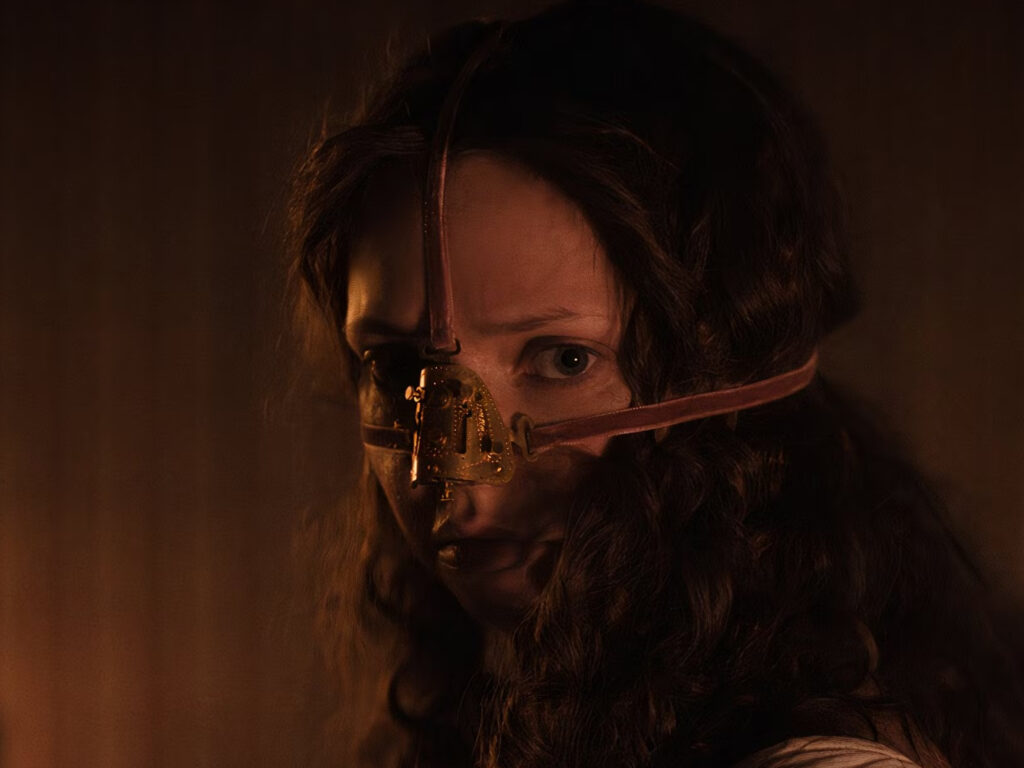
Emilie Blichfeldt takes on medieval beauty standards in this gory reframing of the Brothers Grimm's classic take on Cinderella. The post The Ugly Stepsister review – a mean-spirited Cinderella story appeared first on Little White Lies.
As a youngster I remember being both horrified and intrigued to learn that in the Brothers Grimm version of ‘Cinderella’, the heroine’s cruel stepsisters mutilate their feet in an attempt to fit into the coveted golden (not glass!) slipper during the story’s climactic third act. While the act of desperation is intended to show how vain the women are, it also reveals that there is nothing some won’t do in the pursuit of beauty. Of course it’s been that way since the beginning of time; as long as there have been beauty standards to conform to, women have been harming themselves accordingly, from heavy metals in cosmetics to BBLs.
Emilie Blichfeldt flips the script with The Ugly Stepsister, focusing on the naive Elvira (Lea Myren), who is presented as a slightly gawky but generally pleasant young woman obsessed with her province’s dashing Prince Isak (Malte Gårdinger). Elvira and her sister Alma (Flo Fagerli) gain a stepsister in Agnes (Thea Sofie Loch Næss) the beautiful only child of Otto (Ralph Carlsson) who has recently married Rebeka (Ane Dahl Torp), both incorrectly assuming the other has a vast fortune. At first the relationship between the new sisters is cordial; Elvira clearly idolises Agnes, who is initially welcoming, but after the unexpected death of her father, the relationship between Agnes and her step-family sours. She is unkind to Elvira, while Rebeka cruelly refuses to pay for Otto’s burial and relegates Agnes to the role of servant in her own home.
Soon word arrives that there is to be a ball for all eligible young maidens so that Prince Isak can choose his wife. Elvira is ecstatic, while Agnes sees the Prince as a way to escape her cruel stepmother. But Agnes is already considered a great beauty and a fine dancer; Agnes is not. Her scheming mother arranges for her to undergo harrowing cosmetic procedures, including breaking and resetting her nose to remove a bump and sewing false eyelashes onto her eyelids. Beauty is pain, after all.
Blichfeldt can’t decide if her film is sympathetic to Elvira or sees her as the villain. Leering shots of her (thin) body work hard to imply she’s overweight, while scenes of her gorging on food might suggest a binge-eating disorder but feel voyeuristic and grotesque rather than disturbing, as if the audience should revile her. As Elvira contorts herself to the whims of her mother and dance teacher, she becomes more and more hollow. Her initial pleasantness is replaced by internal ugliness as she grows vain and self-obsessed, failing to even recognise that her beloved Prince Isak might not be all he’s cracked up to be.
All the classic fairytales came with a lesson – in ‘Cinderella’ it was that kindness is eventually rewarded, and good will ultimately triumph over evil. We might be more sceptical of such idealistic sentiments in the modern age, but at least there was some sort of hope afforded to the maligned female lead in the Grimm version. There is precious little kindness in The Ugly Stepsister, and the unpleasantness of every character (save for Alma and the stable boy Agnes is sleeping with) creates a sour air. Perhaps this is the intent here: to create a fairytale where everyone is the villain. But why punish Elvira quite so relentlessly for her attempts to conform with surrounding society’s expectations? Elvira’s transformation is physical and mental but not magical – she becomes cruel because she becomes beautiful. The association between beauty and evil is hardly transgressive; The Substance only just finished its awards run. Like Fargeat’s film, The Ugly Stepsister opts to blame women for the impossible beauty standards that persevere, and make them the cruellest characters in the film. Men stand on the sidelines, leery and grotesque, but ultimately powerless. The film’s creative gore alone cannot paper over the ultimate flimsiness of Blichfeldt’s concept, which amounts to an adolescent scrawl of fairytale satire, somehow less interesting and transgressive than Angela Carter’s ‘The Bloody Chamber’ which predates it by 46 years.
ANTICIPATION.
A lot of buzz for this out of the festival circuit...
4
ENJOYMENT.
Gory but quickly tiresome in its reductive view of womanhood.
2
IN RETROSPECT.
A grizzly but unsatisfying spin on the classic Cinderella story.
2
Directed by
Emilie Blichfeldt
Starring
Lea Myren,
Ane Dahl Torp,
Thea Sofie Loch Næss
The post The Ugly Stepsister review – a mean-spirited Cinderella story appeared first on Little White Lies.
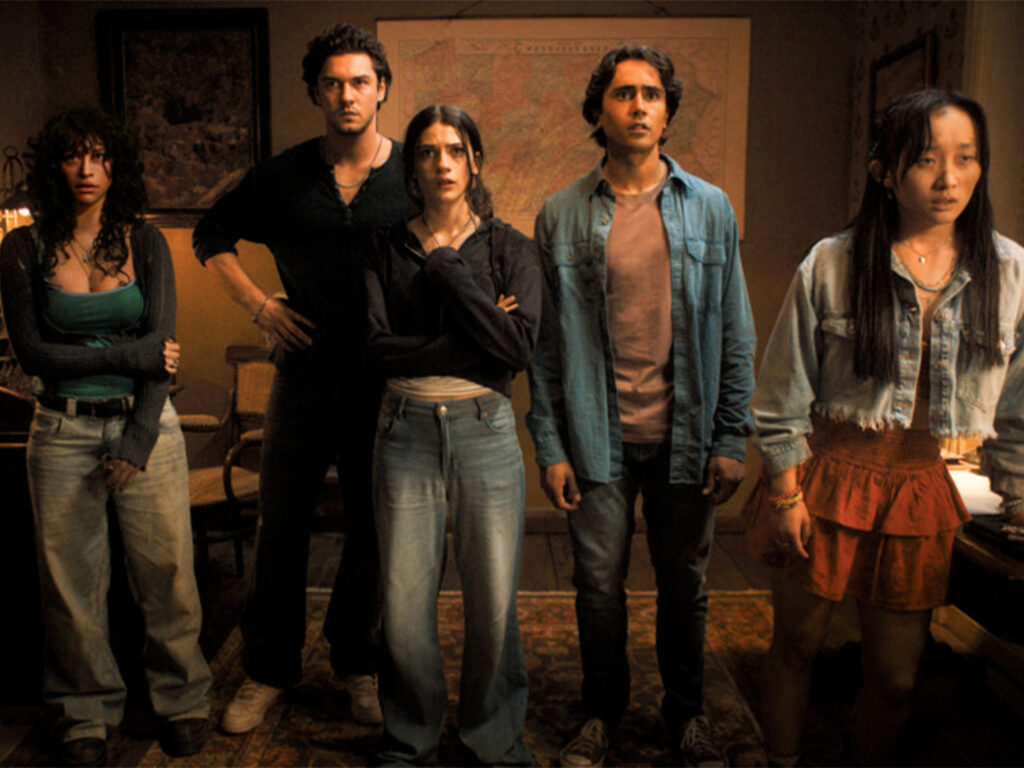 Until Dawn review – an insulting parade of tedium
Until Dawn review – an insulting parade of tedium
 Pretend it’s a video game: How films emulate gaming mechanics
Pretend it’s a video game: How films emulate gaming mechanics
 The Accountant 2 review – tonally wild and uneven but oddly sweet
The Accountant 2 review – tonally wild and uneven but oddly sweet
 Julie Keeps Quiet review – a slick, steely piece of storytelling
Julie Keeps Quiet review – a slick, steely piece of storytelling
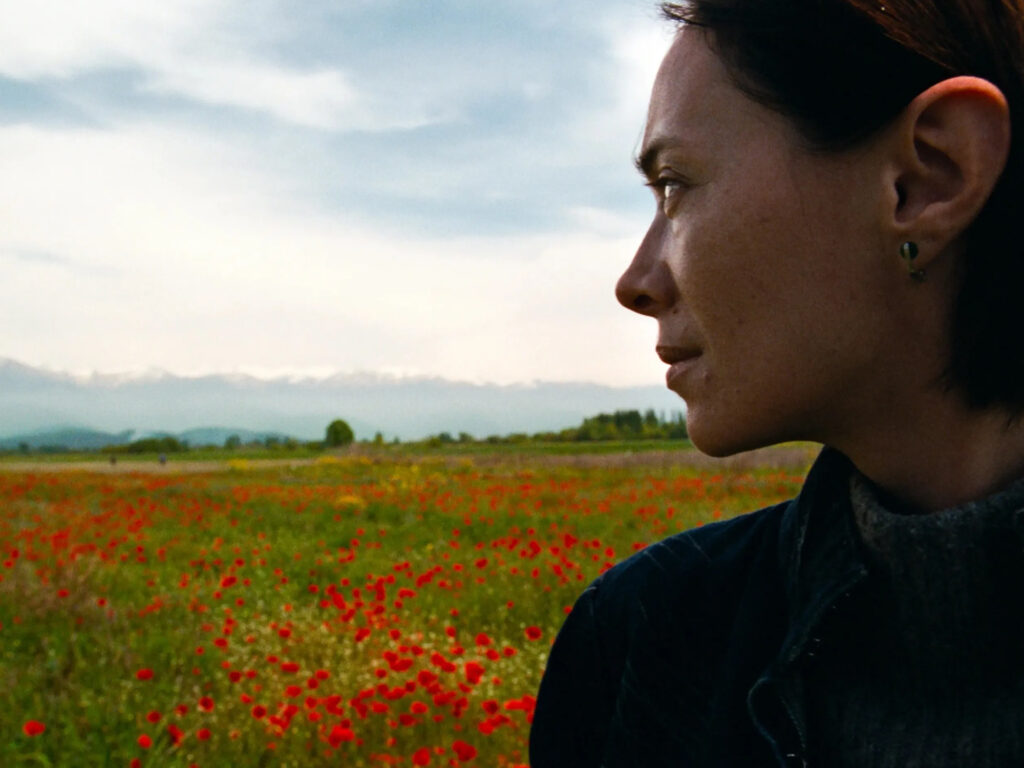 Bodies, Babies and Birth Control in April and All We Imagine as Light
Bodies, Babies and Birth Control in April and All We Imagine as Light
 Cloud review – all-time bleakest episode of Only Fools and Horses
Cloud review – all-time bleakest episode of Only Fools and Horses
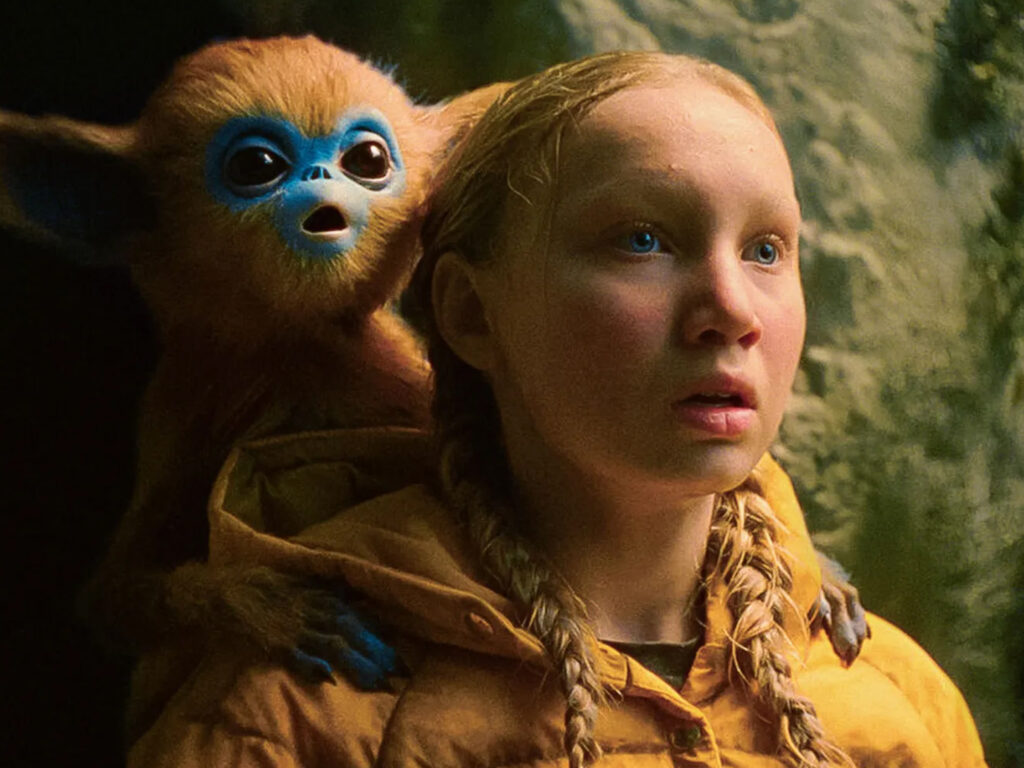 The Legend of Ochi review – well-crafted but tame family adventure
The Legend of Ochi review – well-crafted but tame family adventure
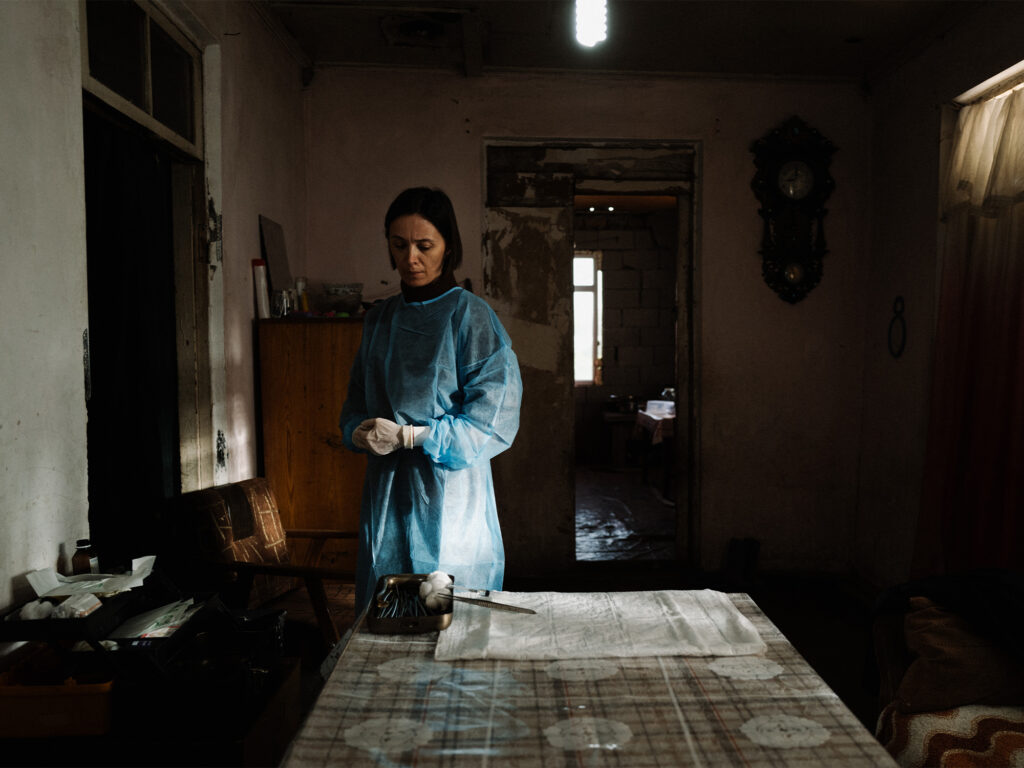 April review – eerily elusive, superbly acted and crafted
April review – eerily elusive, superbly acted and crafted
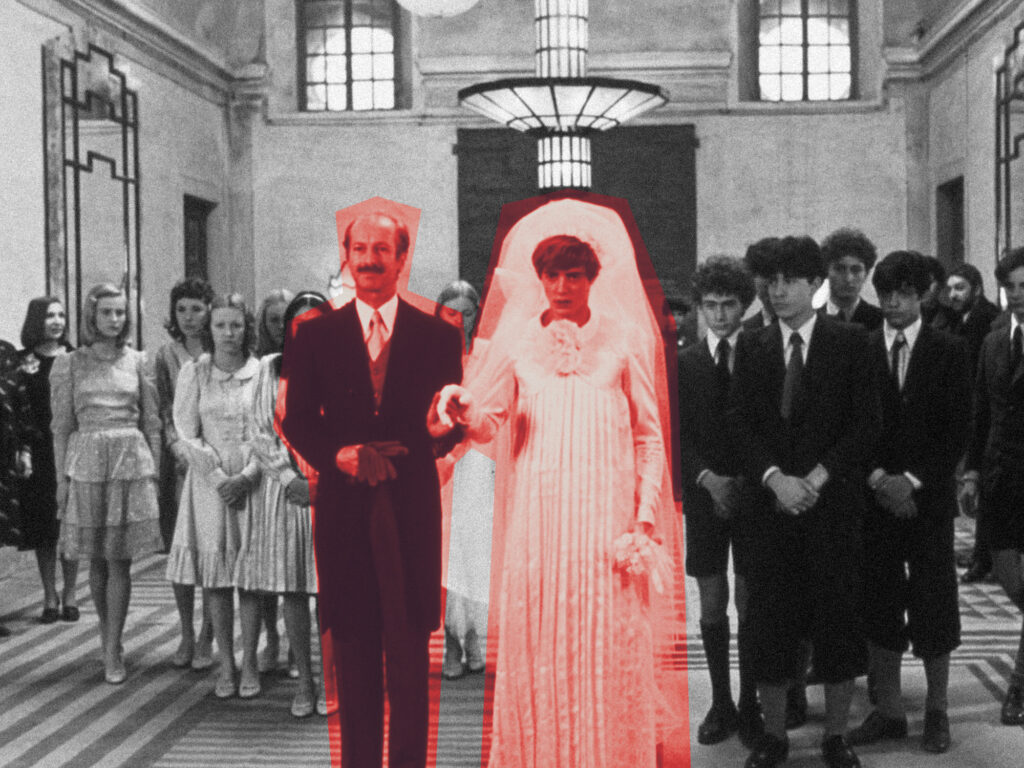 Spectacles of suffering and fascism in cinema
Spectacles of suffering and fascism in cinema






